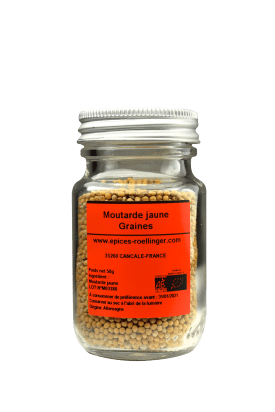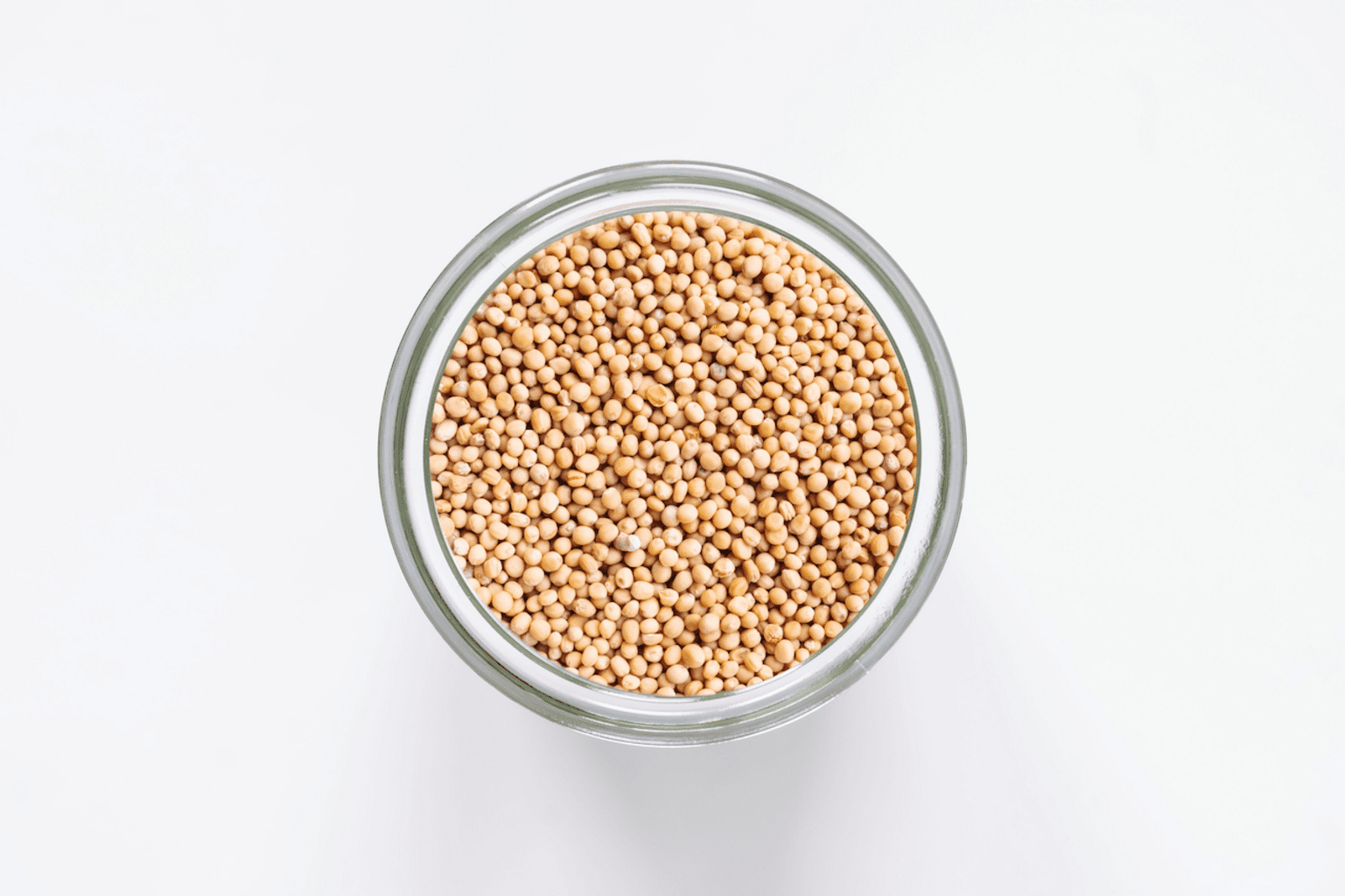White mustard seeds

Recommendations
-
Allergens
*Mustard.
May contain traces of sesame, celery, mustard, soy. - Origin France
- Storage / Use In a cool, dark, dry place.
Olivier Rœllinger's words
The story of mustard cannot end without this verse :
"Three things God warns us against:
salted beef without mustard,
a valet who admires himself,
a woman who paints her cheeks".
Story
White mustard generally comes from Canada, but we have chosen source ours from a certified organic farming cooperative in Occitanie (France) that uses agroecological methods
The word ‘mustard comes from ‘mustum ardens’ a Latin expression that means burning must. (Must is the term for the pulp and skins of crushed grapes.) In ancient times, mustard had medical as well as culinary uses. It was a well-known revellent remedy used to draw blood to an area and ease pain. It was also enjoyed as a flavorful seasoning for foods. By the Middle Ages, mustard was an integral ingredient in salted meat preparations. Dijon and whole-grain mustard are made with brown mustard seeds. White mustard seeds are used to make German, American, and English mustards.
